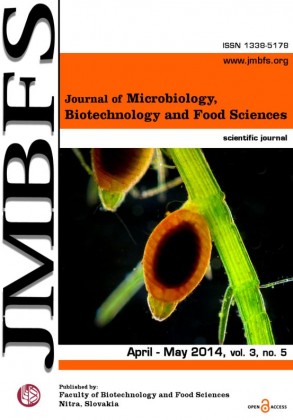DECOMPOSITION OF BT COTTON AND NON BT COTTON RESIDUES UNDER VARIED SOIL TYPES
Keywords:
Bt cotton, soil types, decompositionAbstract
Use of the insecticidal cry proteins from the bacterium, Bacillus thuringiensis (Bt) in cotton has raised a number of concerns, including the ecological impact on soil ecosystems.Greenhouse study was conducted during the 2011 wet season (March to August) at the Institute of Agricultural Sciences of Banaras Hindu University. It was carried out on three different soil orders that includedentisol, inceptisol and alfisol. Bt cotton (var.NCS-138) and its non-transgenic isoline (var.NCS-138) were grown until maturity. A no crop pot was maintained for all the three soil orders. The highest rate of decomposition was found in alluvial soil compared to black and red soils in 50 days after incorporation (DAI). Thereafter the rate of decomposition was slowed downby100 DAI and the constant rate of decomposition was found in 150 DAI. The rate of decomposition was higher in non Bt than Bt crop residues.Downloads
Download data is not yet available.
Downloads
Published
2014-04-01
How to Cite
Kumari, S., Rakshit, A., & Beura, K. (2014). DECOMPOSITION OF BT COTTON AND NON BT COTTON RESIDUES UNDER VARIED SOIL TYPES. Journal of Microbiology, Biotechnology and Food Sciences, 3(5), 360–363. Retrieved from https://office2.jmbfs.org/index.php/JMBFS/article/view/6995
Issue
Section
Biotechnology
License
Copyright (c) 2014 Sujata Kumari, Amitava Rakshit, Kasturikasen Beura

This work is licensed under a Creative Commons Attribution 4.0 International License.
All papers published in the Journal of Microbiology, Biotechnology and Food Sciences are published under a CC-BY licence (CC-BY 4.0). Published materials can be shared (copy and redistribute the material in any medium or format) and adapted (remix, transform, and build upon the material for any purpose, even commercially) with specifying the author(s).

